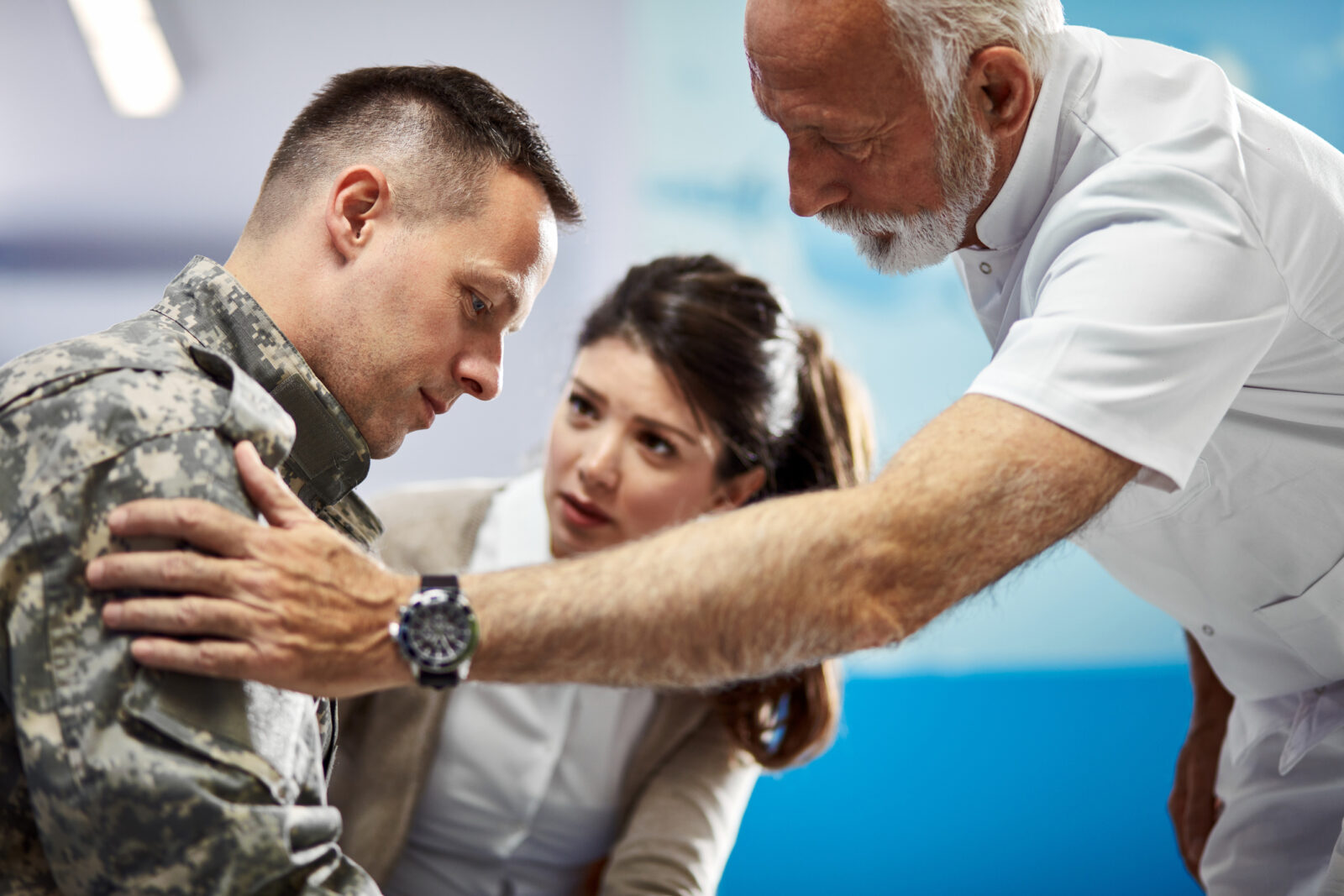Supporting Loved Ones with PTSD

June is National Post-Traumatic Stress Disorder (PTSD) Awareness Month. As part of the campaign to increase awareness, reduce stigma, and help those with the condition, it’s important that we all know ways to support those living with PTSD, whatever their age.
What is PTSD?
When a very stressful, frightening, or distressing event occurs, it’s normal to have trouble sleeping, be nervous, or have flashbacks or nightmares. Some examples of traumatic events are military combat, serious accidents, and abuse. If this “high alert” state continues for longer than a few weeks and interferes with everyday activities, then it’s considered to be an anxiety disorder, or PTSD. PTSD impacts about one in three people who have a traumatic experience. Sometimes, it develops immediately after; other times, it can take longer, even up to years later.
What are symptoms of PTSD?
PTSD can only be diagnosed by a psychiatrist, psychologist, clinical social worker or other mental health professional. Although PTSD symptoms will vary for each person, there are four categories of symptoms.
- Reliving the trauma through nightmares or flashbacks; often there are triggers such as sights, smells, or sounds that cause this symptom, such as fireworks.
- Feeling anxious, always on the lookout for danger; this symptom can increase irritability and unhealthy behavior like smoking, drinking, and doing drugs.
- Avoiding anything about the event, including people, places, and conversations. Sometimes, keeping busy with little free time is a symptom.
- Being more negative about everything; this symptom can include numbness towards others, guilt or shame about the event, and forgetfulness of the trauma.
How can I help a loved one with PTSD?
If a loved one has been diagnosed with PTSD, you can be a key part of recovery. There are many different paths to “getting better,” including counseling and medication. Whatever the treatment, here is what to do.
- Learn about PTSD; knowing how it affects people will help you be prepared for whatever happens.
- Support their treatment program by accompanying them on doctor visits and helping track medicines and therapies.
- Listen when your loved one is ready to talk, but don’t force them into a conversation; make sure you listen without expectation or judgement.
- Encourage regular activities together, like hiking, watching a movie, or going out to dinner.
- Build a support network by including family and friends; suggest your loved ones make contact and stay connected.
- Expect complicated feelings; sometimes you may feel anger, frustration, or some other negative emotion toward your loved one. That is normal.
- Take care of yourself mentally, emotionally, and physically; you won’t be able to help if you are burnt out.
Although each experience is unique, PTSD is treatable. Kevin Rumley, Veteran Purple Heart and coordinator of the Buncombe County Veterans Treatment Court in Asheville, NC, explains, “The opposite of PTSD is safety, compassion, love, connection, and community… this can be achieved when we are simply present with our veterans.” And any other loved ones living with PTSD.
Sources: National Center for PTSD; Veteran.com; UK National Health System; Healthline; PTSD UK; Unite US.
![Charlesgate [logo]](https://www.charlesgate.net/wp-content/uploads/sites/218/2016/12/logo-new.png)